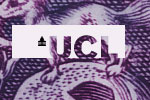

 |
 |
Archeological traces of the BataviansCurrent archeological research focuses on yet another aspect of the earliest civilisation in the Low Countries. The Batavians, apart from being used as a useful representational ploy by later generations, also displayed an interest in their ancestors, adding an as yet barely uncovered layer to the pattern of representations. According to Greek and Roman mythology, Hercules, the adventurous son of Zeus, wandered across the borders of the classical world, expanding civilisation and embodying the perennial struggle against barbarism. As the Batavians were still regarded by the Romans as barbarians - despite so many abberations of Tacitus’ texts in subsequent centuries - they actively searched for a civilised identity. Hercules, or Hercules Magusanus as he was known locally, provided a suitable pretext. The Batavians venerated the Roman half-god as the father of their earliest ancestor, the mother being from a local background to secure the ‘Batavian’ identity of this first, unnamed forefather. The presumed descendancy from Hercules was convenient to explain important Batavian characteristics as described by Tacitus. Their bravery in battle, and their alliance with the Romans could now easily be traced to Hercules. Archeological remains of the Hercules cult are found in various places along the river Rhine. The recent findings open a new window of research for those interested in the Batavians, and ensures the continuing presence of the Batavians and the by now multi-layered Batavian myth. The potentially bright future of this historical theme completes this study-pack. To check your understanding of the material presented here,>try to answer the questions in our quiz. |